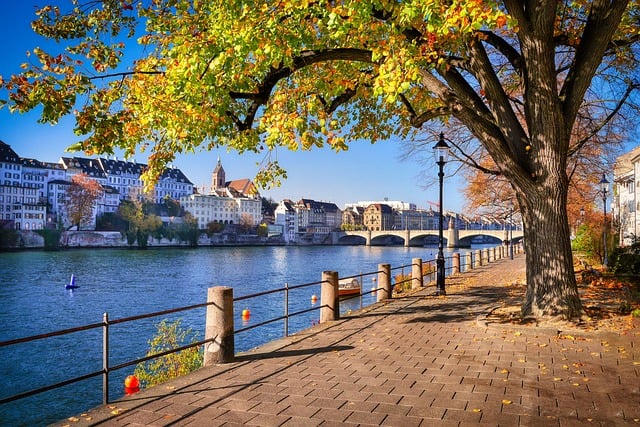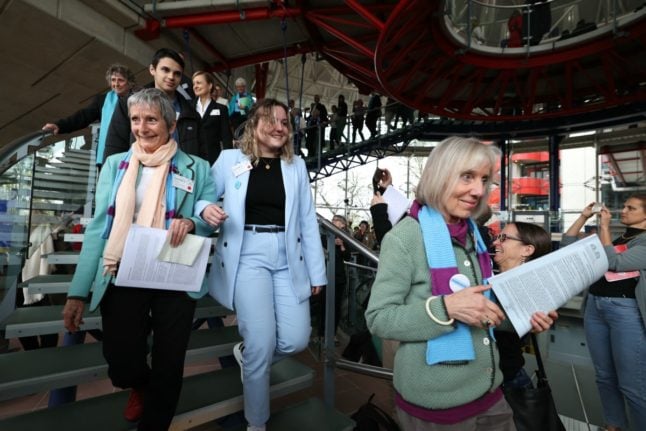“The blockade has been lifted,” the Collective Climate Justice said shortly after 2pm on the X platform, formerly known as Twitter.
The announcement came eight hours after around a dozen of the Collective’s activists gathered at the Dreirosen Bridge in the northern Swiss city of to disrupt traffic on the Rhine, one of Europe’s main shipping routes.
Five of them had descended from the bridge and strung a banner demanding “Freedom of movement for people rather than for oil tankers”.
Another banner had a drawing of a stop sign and the word “Colonial”.
Seit über 6 Stunden wir der Rhein durch Aktivist*innen blockiert!#NoBordersClimateAction 🔥 pic.twitter.com/XeAV1OeOcQ
— Collective Climate Justice (@climategames_ch) August 11, 2023
Basel’s cantonal police had decided to close shipping traffic on the Rhine while the hours-long demonstration took place, leaving around a dozen vessels blocked.
“The top priority is to ensure that none of the people involved are injured,” a police spokesman told AFP while the demonstration was still underway.
The Collective Climate Justice activists were taking part in a “No Borders” climate camp, which had permission to pitch tents near the bridge.
After announcing the end of the action, accompanied with a picture of five empty harnesses dangling under the bridge, the Collective warned on the X platform that people returning to “the camp are being controlled by police.”
“Especially people who look wet from the swimming demonstration,” it warned.
The demonstration is the latest in a growing number of disruptive actions by climate activists in Switzerland, including some where participants have glued their hands to the pavement to block traffic on busy highways.
This week, two members of activist group Renovate Switzerland also disrupted the Locarno film festival by gluing themselves to the stage during an awards ceremony, where the organisers allowed them to address the audience with their demands of more climate action.
Such actions have spurred some public anger, with the populist right wing Swiss People’s Party – Switzerland’s largest political party categorising the non-violent activists as “climate terrorists”.



 Please whitelist us to continue reading.
Please whitelist us to continue reading.
Member comments